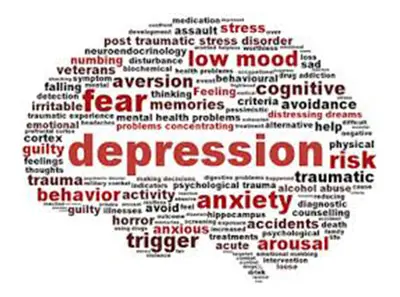Depression
Categories

Depression
Medications play a very important role in treating and managing mental health disorders. This is because conventional treatment of these mental illness conditions requires a combination approach of both medications and therapy. Studies have shown that the best mental illness treatment results are obtained when medications are combined with psychotherapy.
That being said, however, it is important to note that there are several different medications used in the treatment of mental disorders like depression and anxiety, and pain. Some of these medication options appear to be very effective in some individuals, but they fail to work for others. Ultimately, this means that not everyone who is exposed to the same treatment medication will have the same beneficial results from the treatment procedure.

Ultimately, treatment or medical intervention aims to successfully manage physical and mental symptoms of illness conditions so that patients can enjoy relief and improved health. Unfortunately, this goal could prove unattainable in cases where medications don’t work as they should. This is where med management comes in.
What is Med Management?
Med management (or medication management) is a process of periodic evaluation of current health and wellness states after exposure to a particular drug. Simply put, mental health med management involves a psychiatrist working with a patient to ensure effective medical intervention using medications.
Now you may wonder, “is med management really that important?” Or “Why do I need med management?” Read on to find out!
Why Med Management?
You may not be aware of this, but med management plays a vital role in ensuring optimum treatment outcomes. How? Here are two main reasons why med management is important for you:
Better Treatment Results
However, the problem with mental health medications is that they do not always work. This is primarily due to physiological differences in people. What does this mean? Simply put, people have unique “genetic configurations.” While this isn’t generally a bad thing, it does affect a lot of things—for example, different fingerprint patterns and, yes, variations in reaction to the medication.
As a result of this, a mental illness medication that worked spectacularly for one patient might prove to be less effective or even have no effect at all when used by another patient. This will, of course, result in therapeutic failure. With med management, however, drug efficacy is constantly evaluated to ensure that patients get the relief they need from their symptoms. When a drug is deemed to be ineffective, another one is prescribed. The same thing applies when a previously effective drug suddenly becomes less efficacious. With med management, patients can always ensure they’re receiving the best treatment possible.
Safer Treatment for Patients
Aside from the fact that drug response variations play an important role in medication efficacy, it also has a very significant impact on patient safety as well. Because people have different responses to medications and the fact that mental illness conditions can change over time, toxicity is a real issue. You could have situations where a medication that’s usually relatively safe to use becomes pretty toxic to a particular individual. You could also have mental illness medications beginning to elicit new side effects that they didn’t use to.
Wondering how all of this ties up to med management? Well, it’s pretty straightforward. Med management involves the periodic evaluation of current patient conditions. This includes the therapeutic efficacy of the medication prescribed and the side effects being felt by patients. This periodic evaluation allows doctors to identify any change that occurs and make necessary adjustments to the medication regimen. This ensures that patients are always comfortable and never have to deal with unpleasant side effects from their prescribed drugs.
